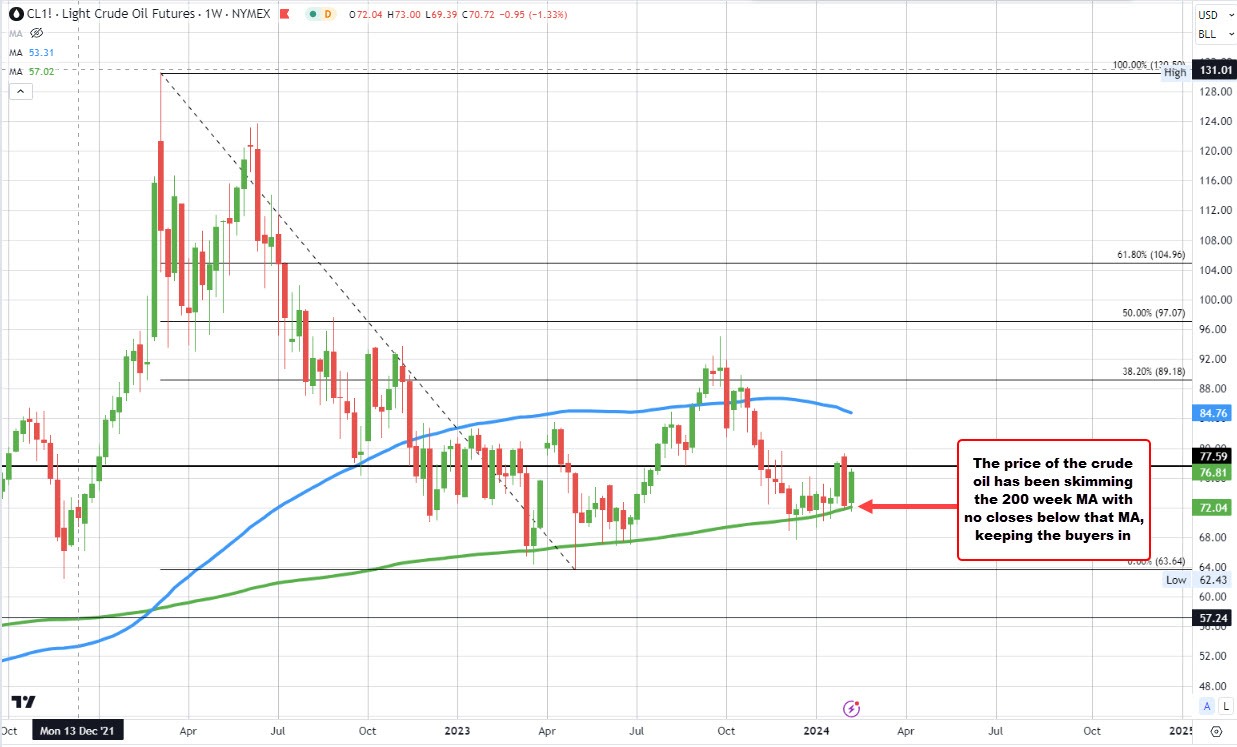The Price of Oil: An Analysis
Current Market Trends
The price of oil is currently settling at $76.84, showing an increase of $0.62 or 0.81% for the day. The day’s high reached $77.29, while the low was at $75.93. Over the trading week, prices have seen a significant 6.27% increase, following a decline of -7.35% last week and a rise of 6.5% the week before. This rollercoaster of price action has been a common theme over the past few trading weeks.
Technical Analysis
Looking at the weekly chart, the price low fell below its 200-week moving average at $72.04. The price has been fluctuating within a range over the last 10 trading weeks, suggesting a period of indecision among investors.
Impact on Individuals
As an individual consumer, fluctuations in oil prices can have a direct impact on your daily expenses. Higher oil prices typically lead to increased costs for transportation, heating, and other goods and services that rely on oil as a primary input.
Global Repercussions
On a global scale, rising oil prices can influence inflation rates, economic growth, and geopolitics. Countries that rely heavily on oil imports may face challenges in maintaining their economic stability, while oil-exporting nations may benefit from increased revenues.
How Does this Affect Me?
For consumers, the increase in oil prices may result in higher prices at the gas pump, increased heating bills, and potentially more expensive goods and services. It’s important to budget accordingly and be mindful of your energy consumption to mitigate the impact of rising oil prices on your personal finances.
Global Implications
Internationally, countries that are net importers of oil may experience economic strain as their energy costs rise. This could lead to inflationary pressures and slower economic growth in these regions. On the other hand, oil-exporting nations may see a boost in revenue, which could have positive effects on their economies.
Conclusion
As the price of oil continues to fluctuate, it’s important for both individuals and nations to monitor these changes closely and adapt their strategies accordingly. Understanding the implications of rising oil prices can help individuals make informed financial decisions and policymakers navigate the complex dynamics of the global economy.





